This company just bioengineered a plant-bacteria combo to clean air better than an air purifier
The secret is bacteria
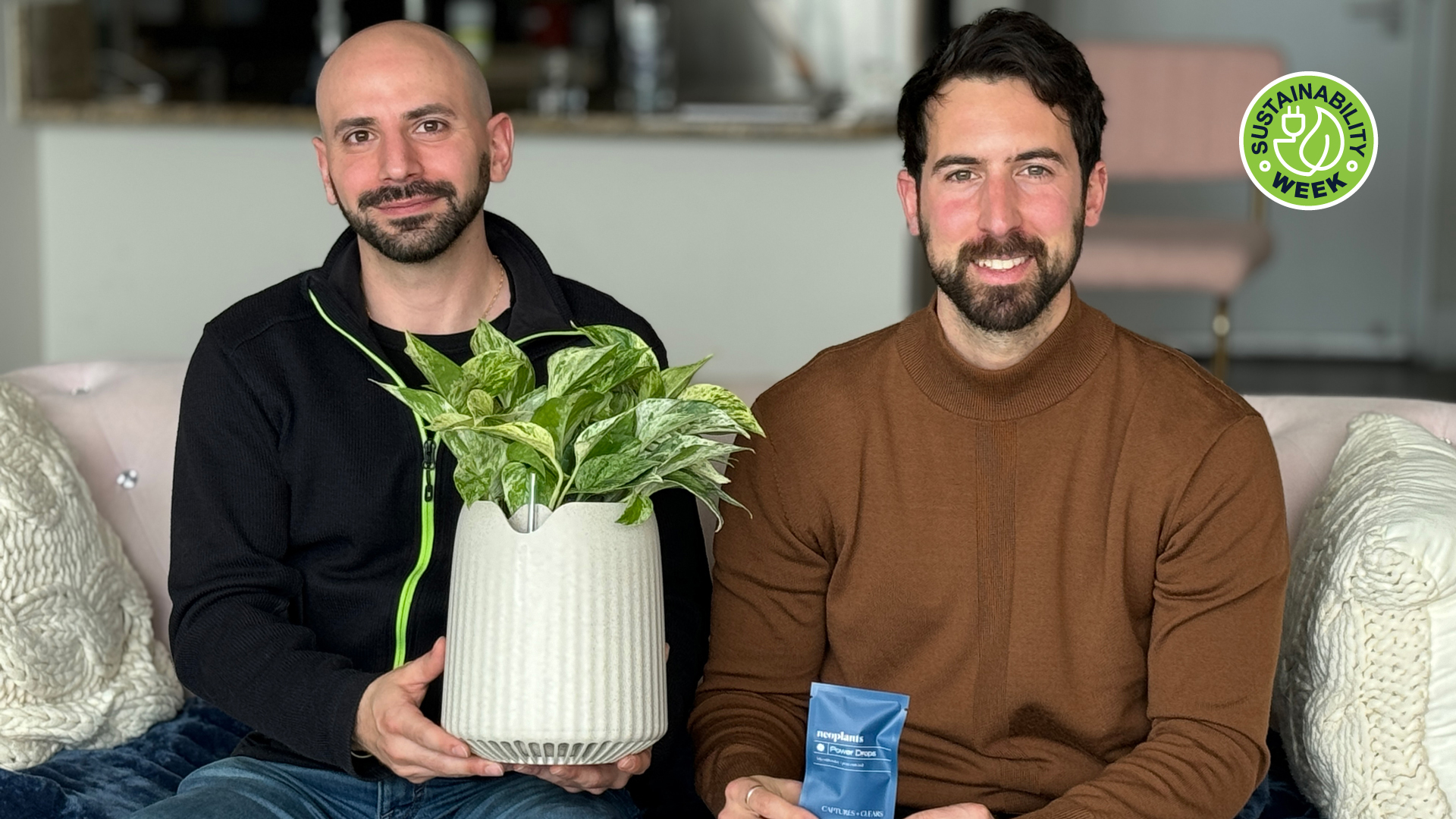
This article is part of a series of sustainability-themed articles we're running to observe Earth Day 2024 and promote more sustainable practices. Check out all of our Sustainability Week 2024 content.
Plants and trees take carbon monoxide from the atmosphere. That’s common knowledge, but given the amount of pollutants we produce, both outdoors and in our homes, plant life can only do so much to clean our air. However, the bioengineering firm Neoplants has a new idea – and it may change the way you feel about houseplants and their air-cleaning capabilities.
This week, the French company launched its first product: Neo Px. It’s not technology in the traditional sense. In fact, almost all of it is organic or reclaimed. Inside a home, you might be challenged to even spot the product, which is the result of four years of bioengineering research and directed evolution. And where hardware and software engineers work in ones and zeros, Neoplant’s scientists worked with four letters, specifically the letters denoting four of the components of DNA – Adenine (A), Cytosine (C), Guanine (G), and Thymine (T) – to re-engineer toxin-eating bacteria and create a new kind of eco-forward house plant.
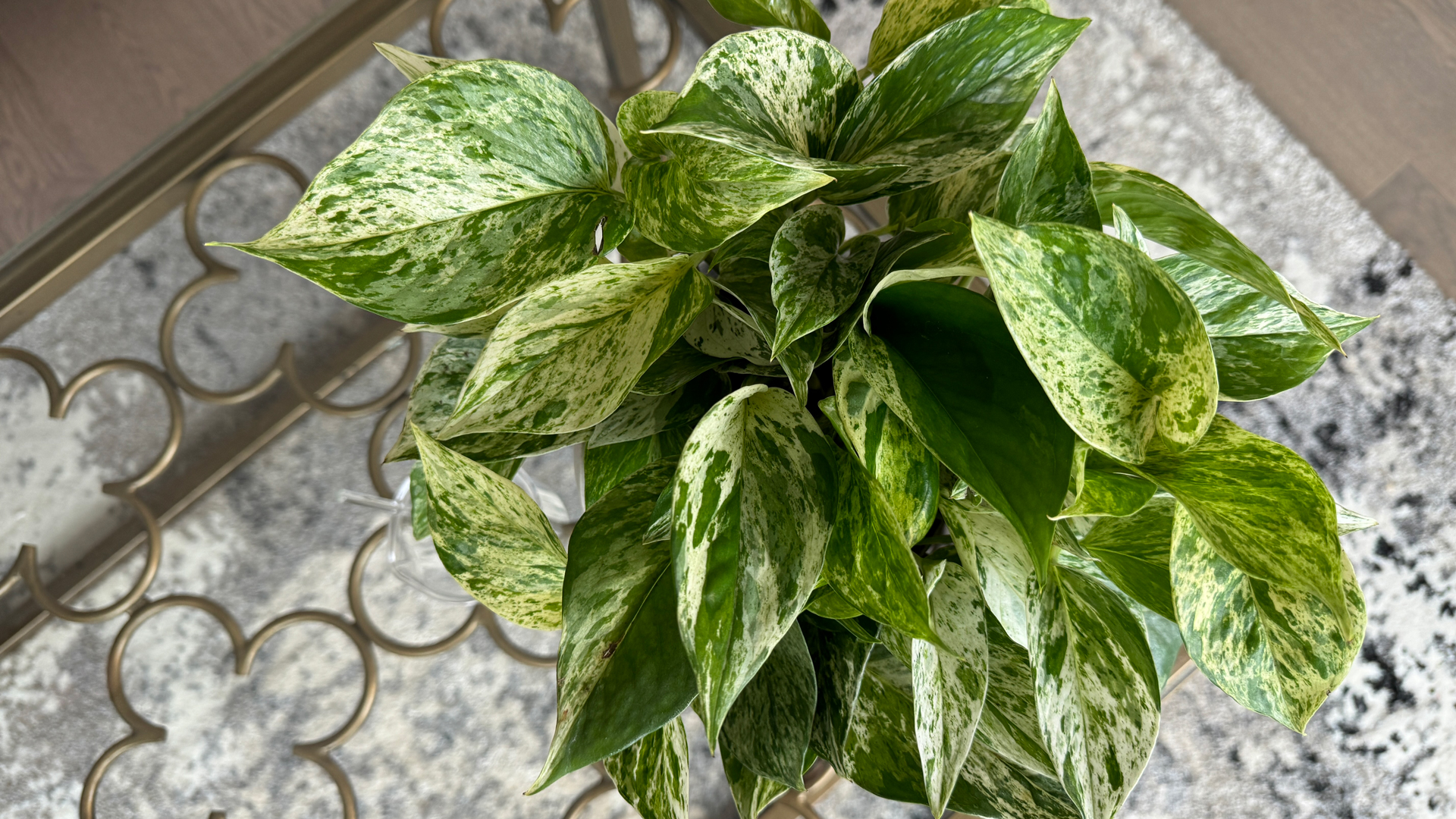
Sitting last week with the company’s co-founders, CEO Lionel Mora and CTO Patrick Torbey, PhD, who has a doctorate in genomic engineering, amid roughly 30 house plants, they directed my attention to one single, vibrant, marble queen pothos resting in a beige planter. This was no typical plant. The planter, or self-watering “shell,” as they called it is made of bioplastics from recycled agricultural waste, and features a vented shell and basket interior that holds the plant with “supercharged air purification capability.”
It can, they explained, pull from the air 30 times more volatile organic compounds (VOCs) than a typical plant; or, more specifically, do on its own the work of the 30 other plants stuffed into the hotel room.
@techradar ♬ So Much Happiness - Lux-Inspira
The secret is not so much the plant as it is a symbiotic relationship between Neoplants' bioengineered bacterium and the leafy pothos. Every month, the plant gets a dose of Power Drops, a powered solution that you mix with water and then pour into the plant’s soil. This delivers the powerful bacteria (normal plants also have bacteria on them and in their soil, just as your biome has healthy bacteria on your skin and in your gut), which then live among the roots and pull in toxins through the leaves and soil (thanks to the vents in the plant basket that pull in air and move it over the roots), which they convert to nutrients for the plant.
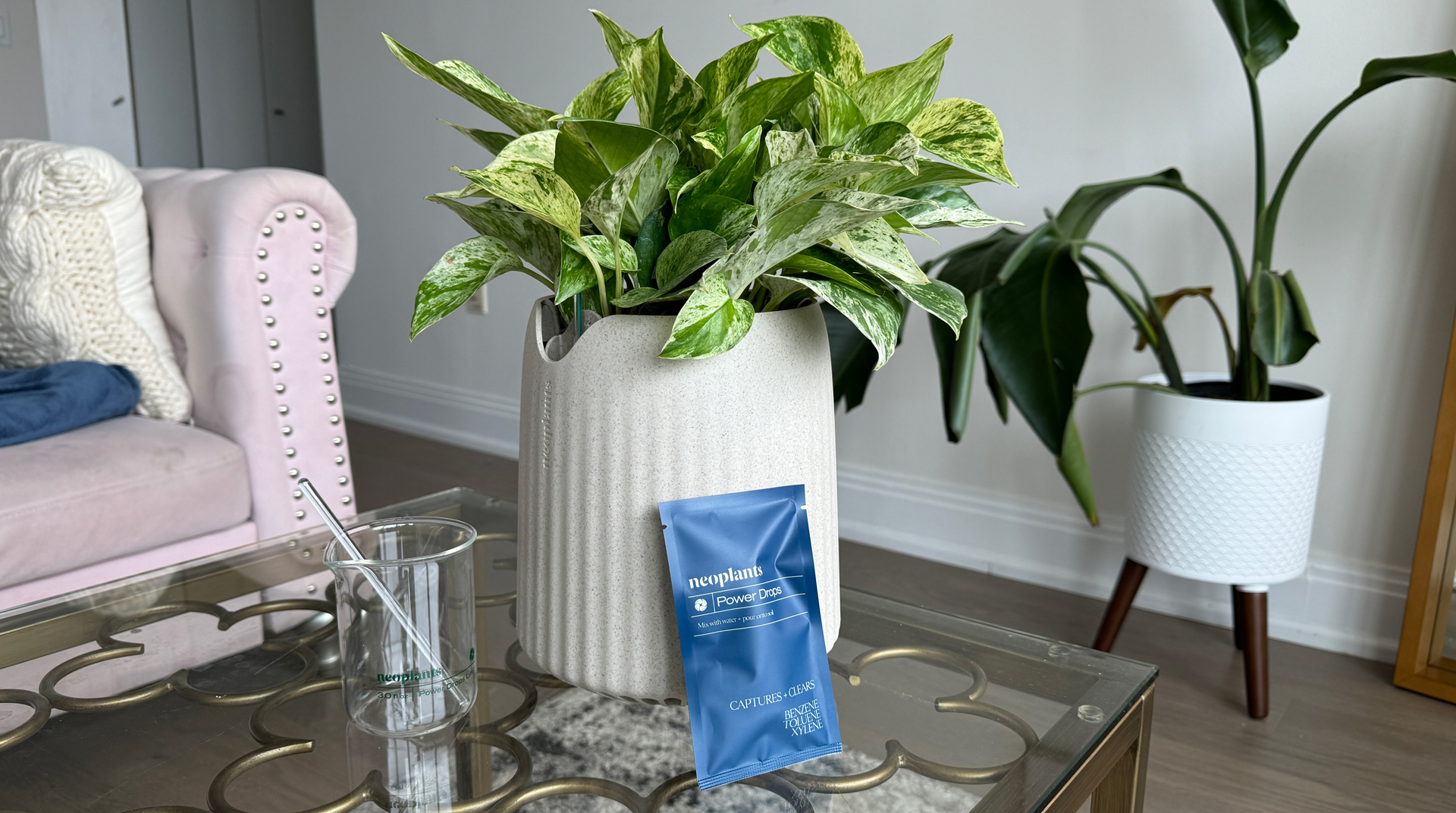
While the bacteria occurs in nature, this is not the same bacteria you’d find in nature. Four years ago, Neoplants' researchers began traveling to polluted regions to look for bacteria that appeared to thrive in those conditions. The company then pressure-tested the bacteria to see which ones worked best with higher levels of VOCs. As it did this, it also identified the bacteria that were able to adapt to handle ever-increasing levels of pollutants. It was through this process of directed evolution that it engineered its custom, VOC-loving strain, also known as pseudomonas putida. The pairing with the pothos is also specific since, the co-founders told me, the company can’t guarantee the bacteria will be as effective with a different plant.
Now, the company is ready to start selling its first product, a Neo Px package that for $139 includes the plant, shell, six packets of the Power Drops mixture, and a glass beaker and stirrer (just like the lab) to mix it. Those who pay for a six-month supply of the bacteria upfront can get the package for $119. Quarterly Power Drops supplies cost $39.
Get daily insight, inspiration and deals in your inbox
Sign up for breaking news, reviews, opinion, top tech deals, and more.
One plant covers the air quality for a typical-sized bedroom. If you want more coverage, you'll need more plants and Power Drops.
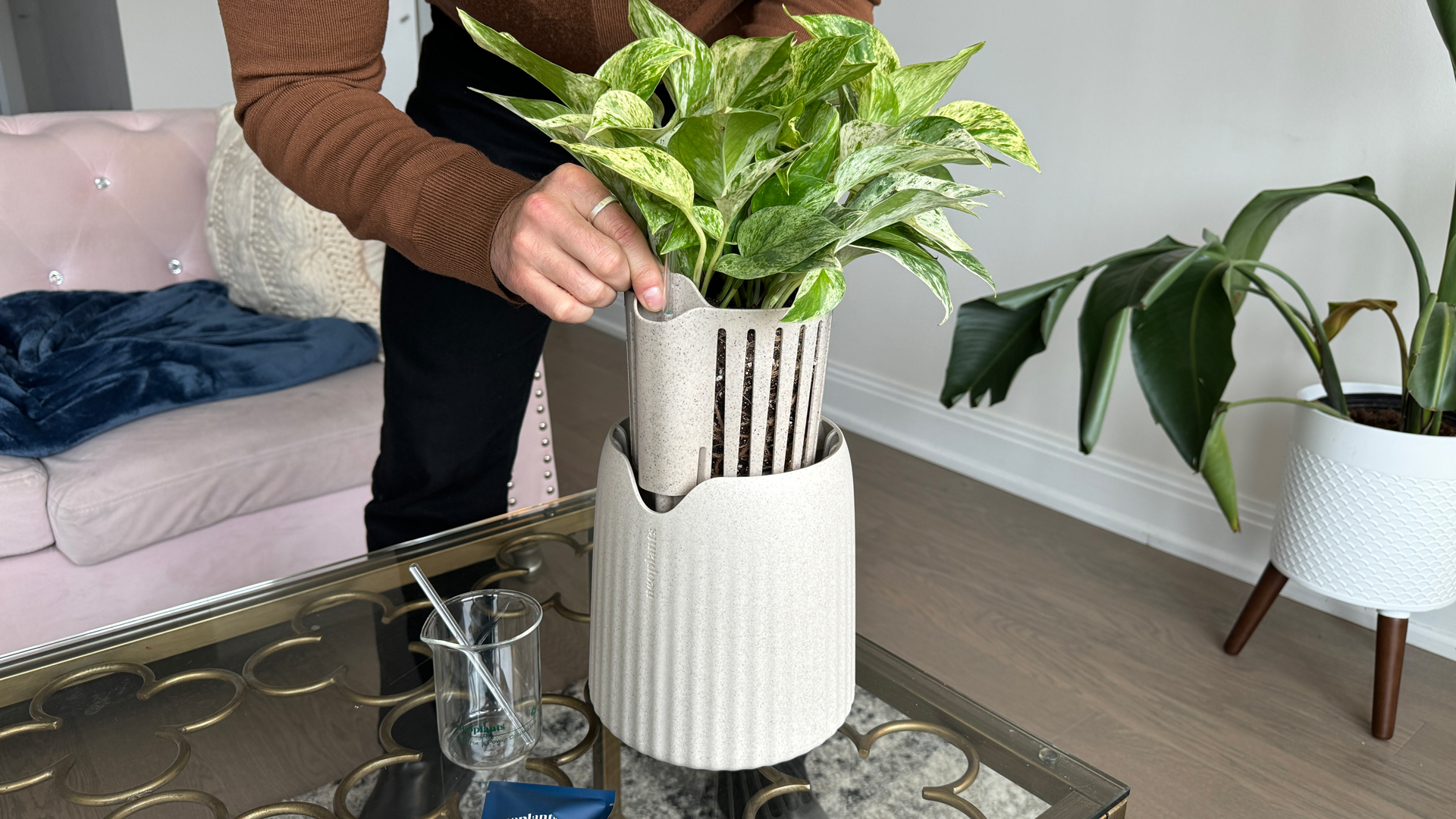
That’s not cheap, and it’s not clear how people who normally forget to water their regular plants will remember to feed their Neo Px plant the VOC-cleaning bacterium each month. It’s not hard to do, but people will forget, and others may balk at the upkeep price for what appears to be just a pretty plant.
Plus, Neoplants can’t come to your home and prove the VOC cleaning capabilities. Most consumer-grade air-quality test systems, they told me, cannot measure the tiny molecule-sized particulate levels of VOCs (consumer air purifiers that rely on filters may also fail at this task) and there's no test kit included with the product because it’s not possible to measure without expensive equipment.
Still, the company can show you the receipts for all its testing and results. Its staff worked with a public university in France to test this system independently, and built a 160sq ft test facility with what they called "amplifiers" to test the effectiveness of their plants and bacteria. Even now, the company continues testing its products with third parties to prove its effectiveness.
Perhaps the costs will be balanced out by the peace of mind that comes with potentially lower VOC levels in the home.
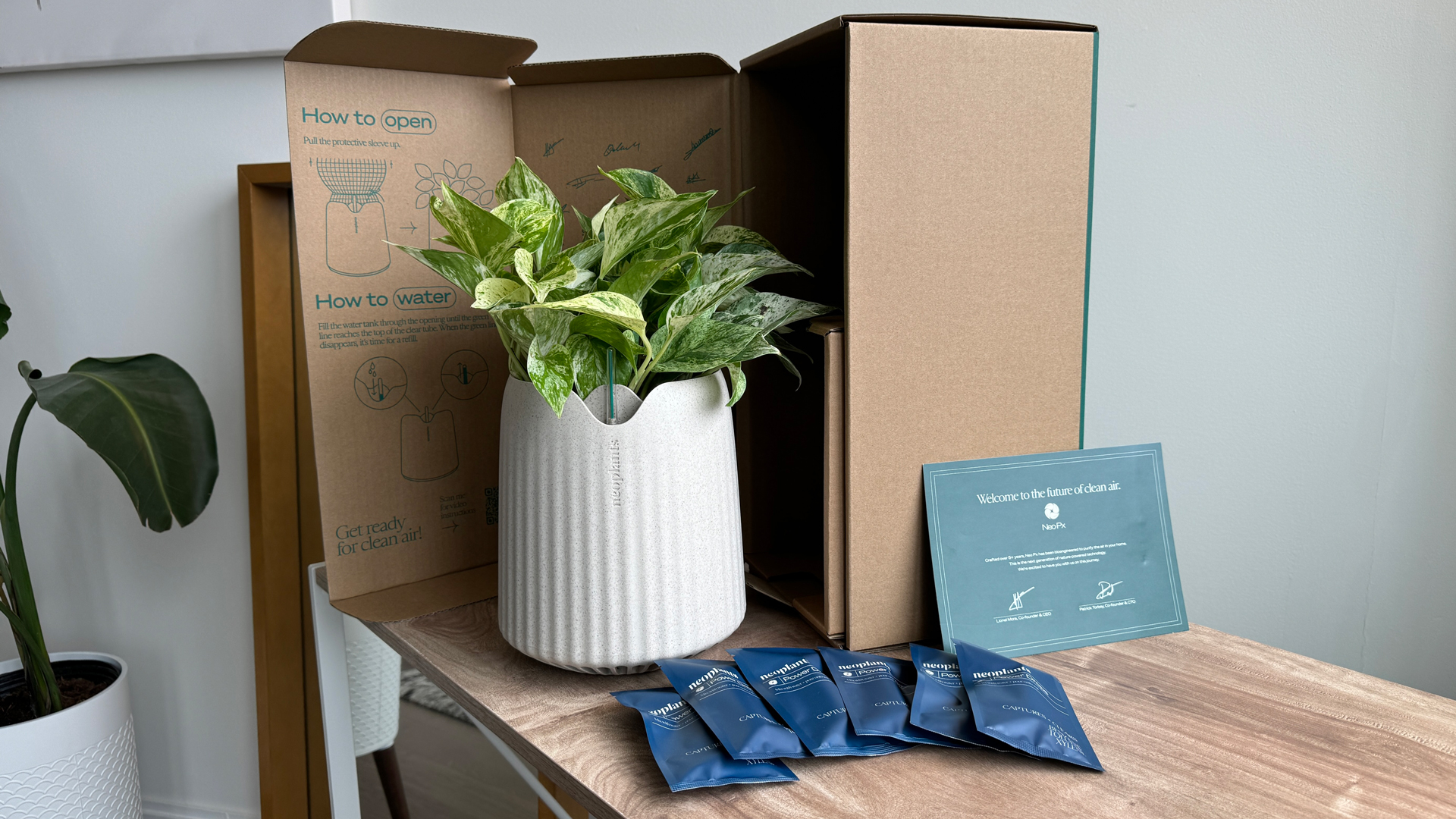
According to the US Environmental Protection Agency (EPA), VOC levels in the home are two to five times higher indoors than outdoors – and if you’re doing something like stripping paint, the numbers skyrocket.
VOCs are invisible but, the EPA notes, their effects are not, and they range from causing nausea and skin irritation to cancer in humans and animals.
Neoplants' long-term vision goes far beyond VOC-hoovering house plants – the company is looking at developing products that could impact air quality outside the home, and maybe even someday help tackle climate change.
In the meantime, though, they’re just thinking about the Neo Px launch – and if they can satisfy some early adopters' desire for planter colors other than beige.
You might also like

A 38-year industry veteran and award-winning journalist, Lance has covered technology since PCs were the size of suitcases and “on line” meant “waiting.” He’s a former Lifewire Editor-in-Chief, Mashable Editor-in-Chief, and, before that, Editor in Chief of PCMag.com and Senior Vice President of Content for Ziff Davis, Inc. He also wrote a popular, weekly tech column for Medium called The Upgrade.
Lance Ulanoff makes frequent appearances on national, international, and local news programs including Live with Kelly and Mark, the Today Show, Good Morning America, CNBC, CNN, and the BBC.